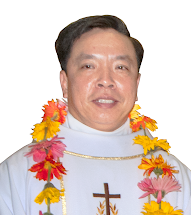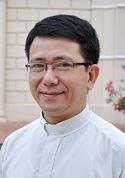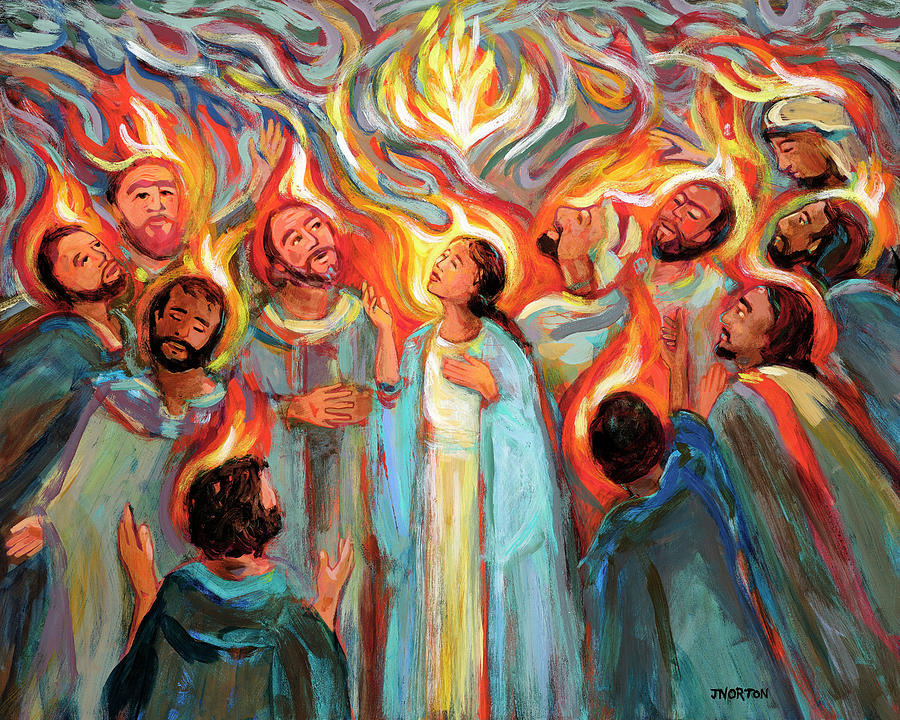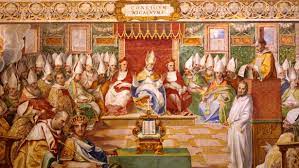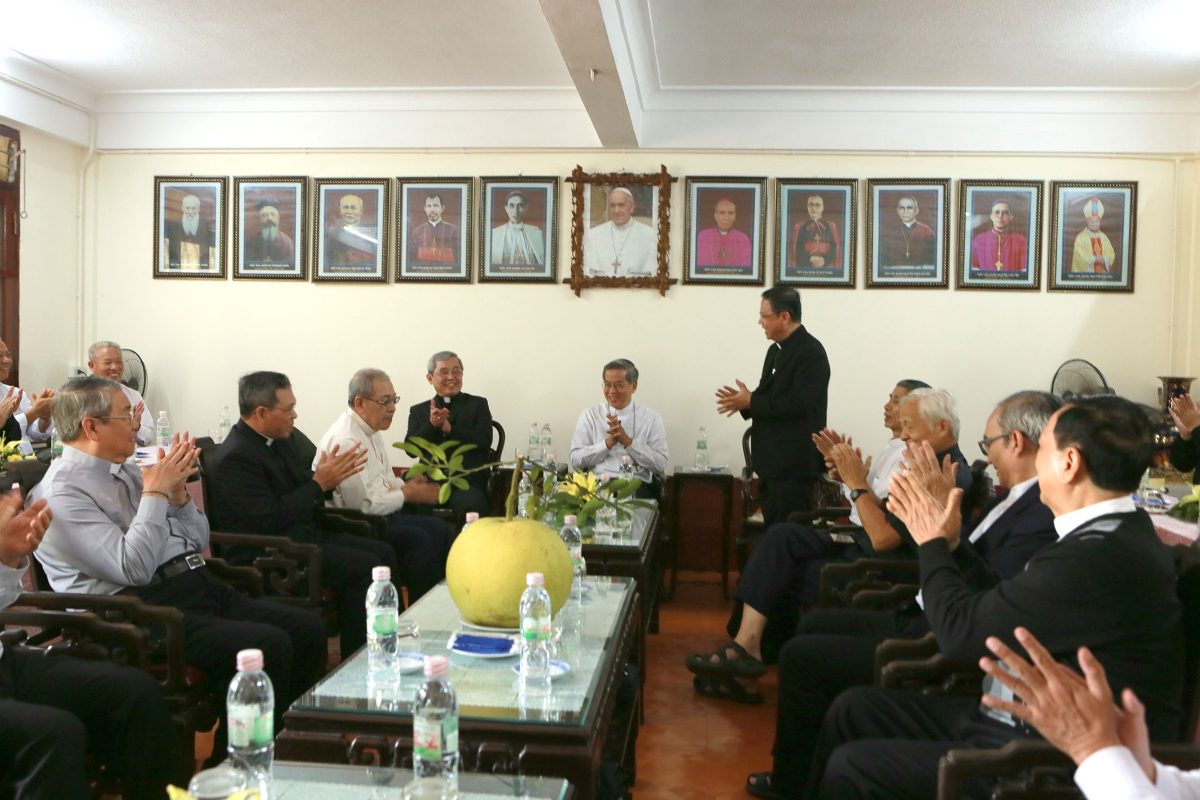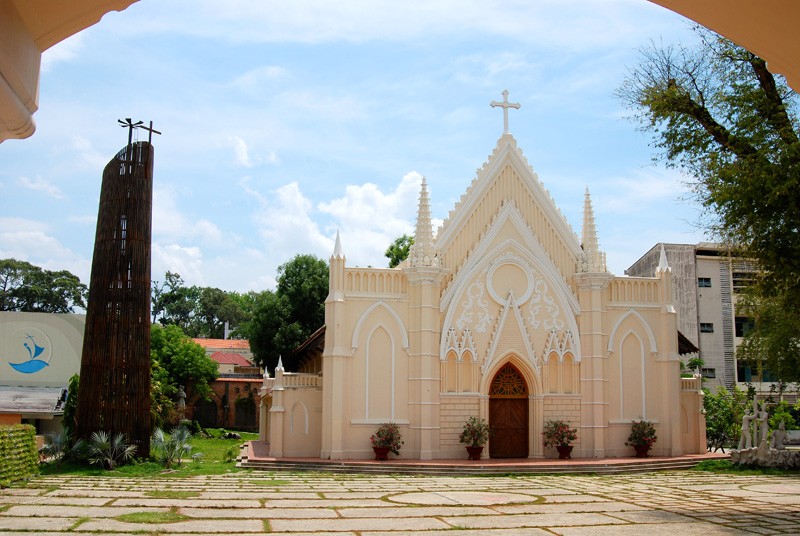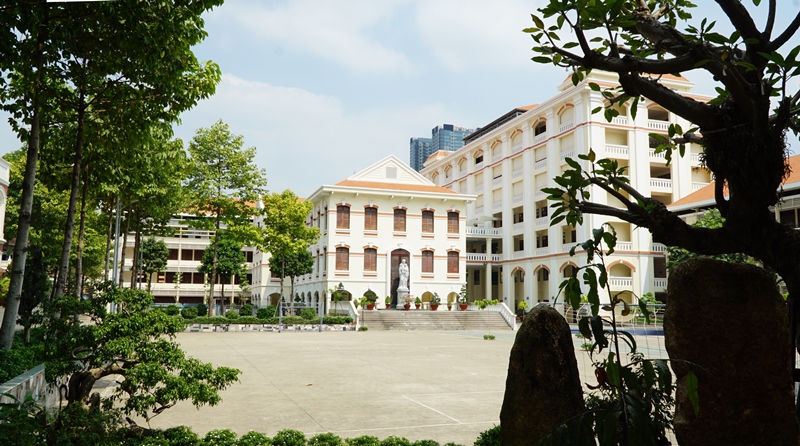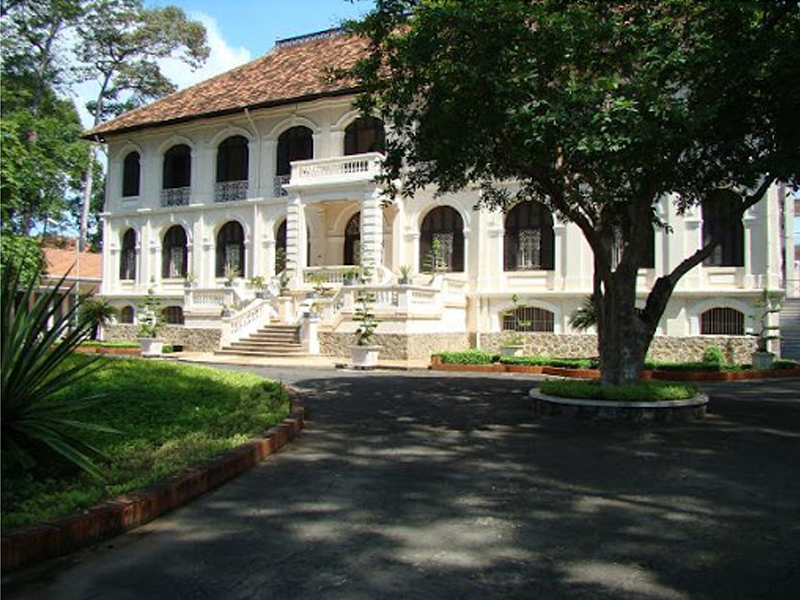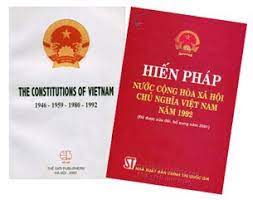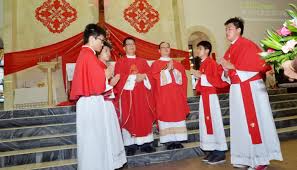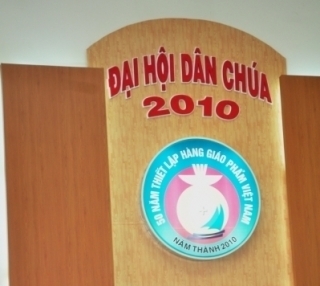Dreams of FABC Pioneers Offer Lessons for Today’s Asian Church Leaders
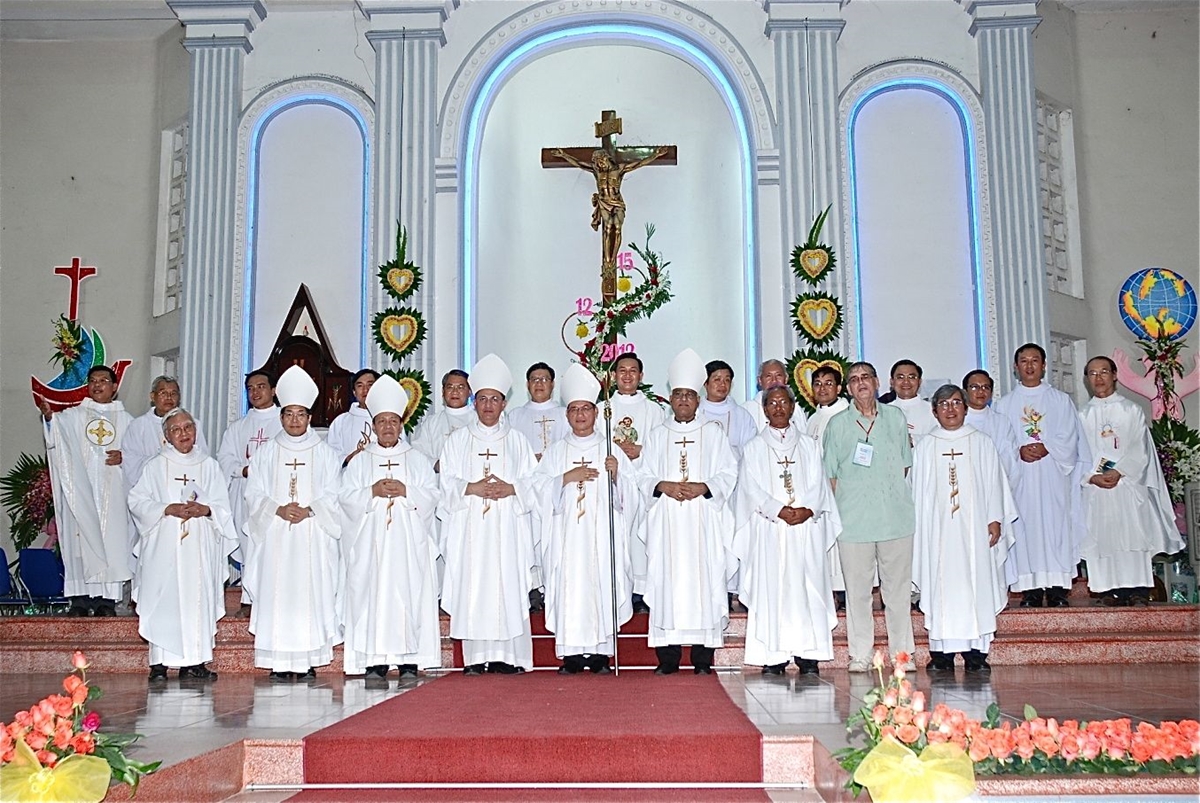
FABC -- Delegates and guests attending the 10th Plenary Assembly of the Federation of Asian Bishops’ Conferences (FABC) have heard how the dreams of a few Asian bishops combined with the openness of Pope Paul VI to empower Catholic bishops of Asia to work together during the past four decades.
The participants arrived on Dec. 10 for their gathering, which was held on a large compound of the Catholic diocese of Xuan Loc, east of Ho Chi Minh City. On Dec. 11, the first full day of the assembly marking the FABC’s 40th anniversary, they heard about the federation’s origins and witnessed the Vietnam Church announcing that it aims to be a strong voice for the FABC in the future.
The seeds of the FABC were planted in November 1970 when Pope Paul VI met with 180 bishops of Asia in Manila. His initiative prompted 11 of those bishops to meet the following year in Hong Kong, to begin putting together a structure that would connect all the Catholic bishops in Asia with one another.
The participants at this year’s assembly learned much about the federation’s beginnings through PowerPoint presentations and the sharing of testimony gleaned from official documents produced by FABC pioneers.
In one such presentation, Cardinal John Tong of Hong Kong highlighted the role of Bishop Francis Hsu of Hong Kong and the presidents of 10 bishops’ conferences in Asia. Cardinal Tong pointed out that Bishop Hsu organized a meeting for those episcopal leaders in Hong Kong in March 1971 and they drafted a plan for the federation that was sent on to Rome for its approval.
However, Cardinal Tong noted, the bishops were disappointed that Rome refused to approve the plan. Bishop Hsu then invited them to reconvene in August 1972. When they did so, they drafted a new plan largely based on the ideas of Korea’s Cardinal Stephen Kim of Seoul. Soon thereafter, Cardinal Kim and two other FABC pioneers took the plan to Rome and personally asked the pope for his blessing.
Scarboro Father Raymond O’Toole, a Canadian who now serves as FABC assistant executive secretary, told the assembly that Pope Paul agreed to their proposal and the Vatican gave its official approval in 1972. This fulfilled a special dream of Cardinal Kim, who is often called the “Father of FABC.” The Korean cardinal long felt the need for Asia’s bishops to come together and develop an indigenous theology for the peoples of Asia.
FABC membership has grown from the original 11 episcopal conferences in East, Southeast and South Asia to 19 members today, including one in Central Asia. Nine other Church jurisdictions across the continent that have no bishops’ conference belong to the FABC as associate members.
Archbishop Thomas D’Souza of Calcutta presented a personal history of the FABC written by India’s Archbishop Henry D’Souza, a former secretary general of the federation. The 86-year-old prelate, now retired, wrote that during his tenure as secretary general from 1984 to 1993, the organization grew in stature and importance because of the bishops’ cooperation and their commitment to dialogue with the religions, the cultures and the poor of Asia.
Father Raymond Ambroise, executive secretary of the FABC Office of Social Communications, pointed out that the FABC aims “to foster among its members solidarity and co-responsibility for the welfare of the Church and Society in Asia.” He cited a study by Edmund Chia who said that bishop delegates at FABC plenary assemblies held every four years share their reflective experiences, deliberate, discuss and vote on the statements. When the bishops’ conferences accept those statements, Chia asserted, they co-own them, so the statements can be regarded as both the Asian bishops’ own voice and the voice of the whole Church in Asia.
Maryknoll Father James Kroeger highlighted the past four decades of FABC theology and listed 10 pivotal focuses in that theology. He explained that the FABC methodology is a “pastoral cycle” which moves from exposure and immersion in a concrete situation to social analysis and reflection on the human impact. It then involves contemplative immersion (prayer) and from that emerges pastoral planning and implementation that aims to build up a local Asian Church.
Father Ambroise and Father Kroeger told the delegates that many people today are unaware of the FABC’s rich traditions and theology launched 40 years ago through the initiative of a few “Asian Dreamers.” Those treasures are not being passed on to the Asian Church’s young clergy and seminarians, they both said.
The rich traditions that have developed during the past 40 years in the local Church of Asia are well reflected in the history of the FABC, but the Church throughout Asia cannot stay static or married only to its past. The opening of the 10th plenary assembly revealed that Asia has other voices that need to be heard.
One of them, the Vietnam Church, sounded notice it should be looked on as a strong voice in Asia. Still other voices remain to be heard from elsewhere around the continent, not least from the Church in Mainland China. Many participants at this assembly look forward to that becoming a reality during the coming decade as the FABC prepares for its 50th anniversary.
Source: Website FABC
Latest Posts
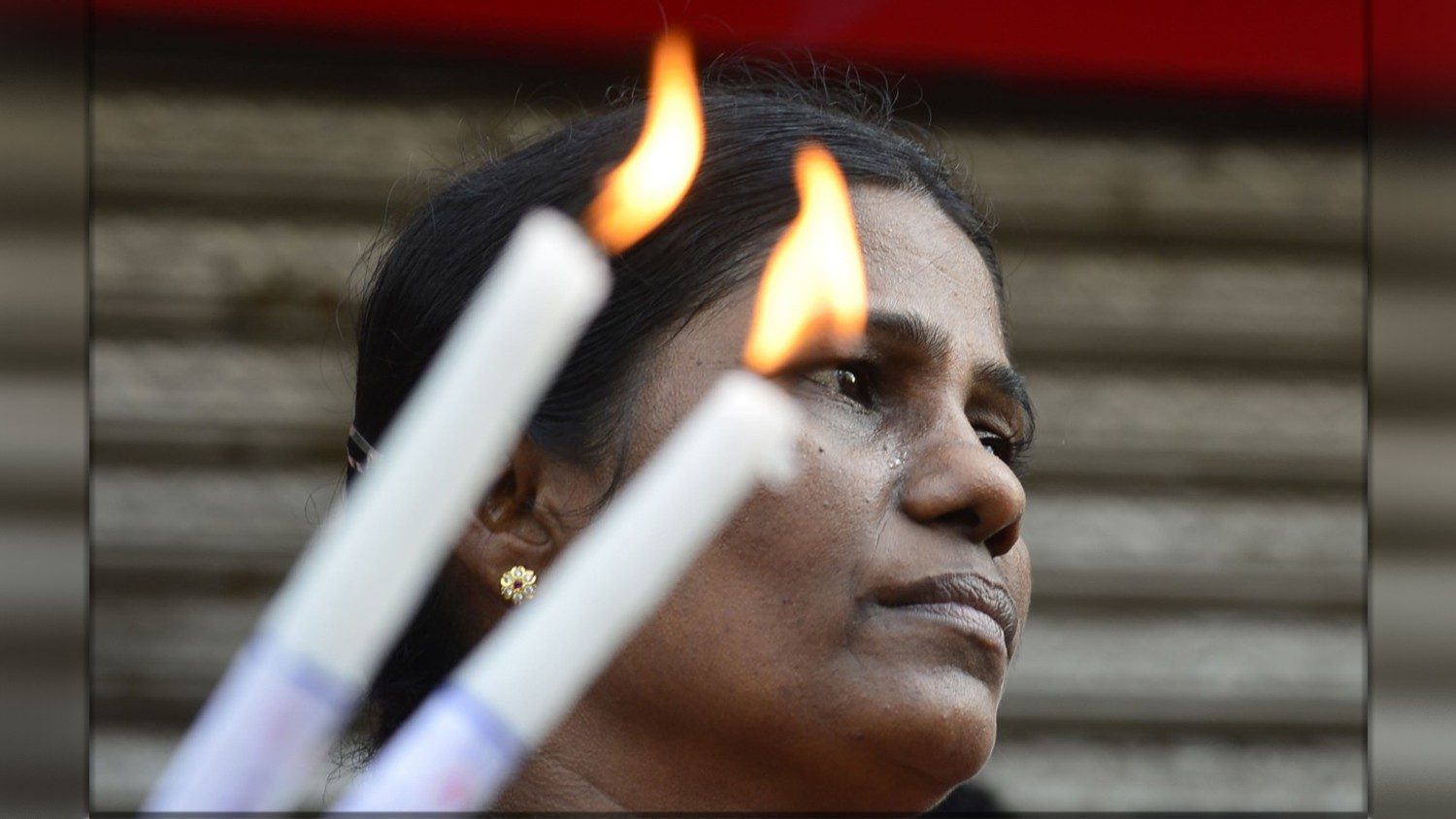
- Caritas Sri Lanka: fighting fear, promoting reconciliation
-
Pope Benedict XVI announces his resignation at end of month -
FABC Welcomes Timor Leste as Its Newest Member -
Small Churches of Asia Offer Many Lessons at FABC Plenary Assembly -
Six New Cardinals Created at Consistory -
Church plays an important role in the integration of migrants -
Pope meets with new Cardinals -
Vatican Official Remembers Cardinal Nguyễn Văn Thuận on 10th Anniversary of His Death -
BISCOM 8 on Social Media
Popular Post
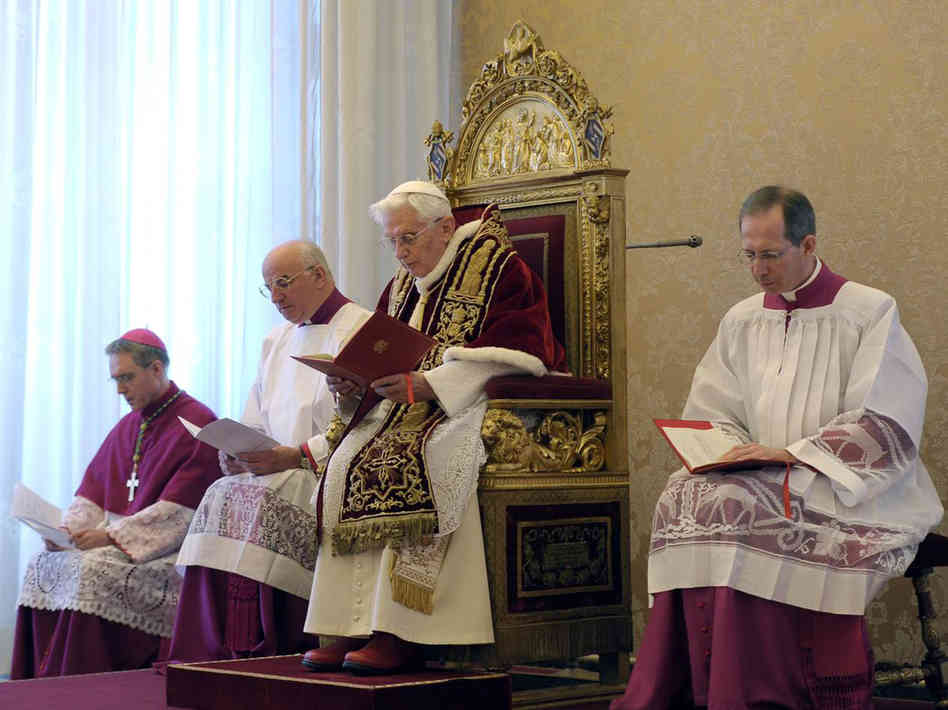
- Pope Benedict XVI announces his resignation at end of month
-
Six New Cardinals Created at Consistory -
Pope meets with new Cardinals -
FABC Welcomes Timor Leste as Its Newest Member -
Vatican Official Remembers Cardinal Nguyễn Văn Thuận on 10th Anniversary of His Death -
Caritas Sri Lanka: fighting fear, promoting reconciliation -
Church plays an important role in the integration of migrants -
Small Churches of Asia Offer Many Lessons at FABC Plenary Assembly -
BISCOM 8 on Social Media


